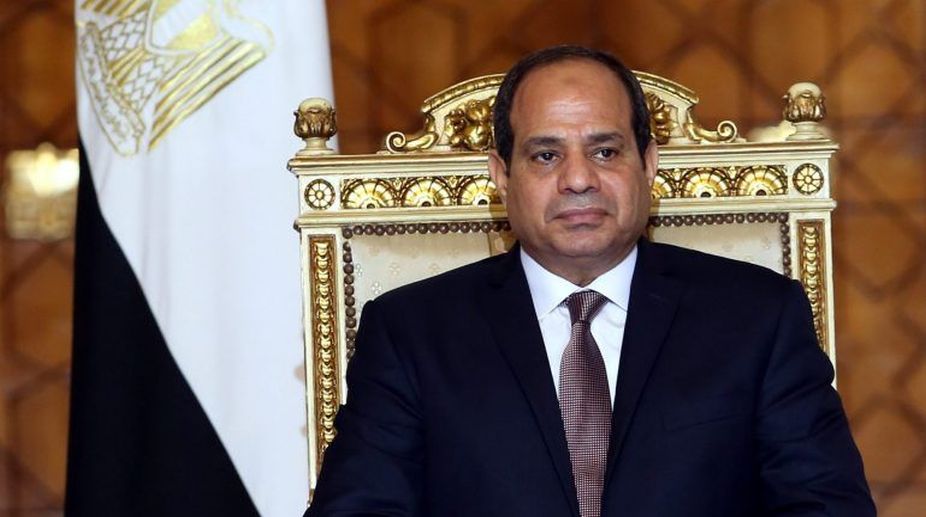Egypt, Jordan, France urge immediate ceasefire in Gaza
Egypt, Jordan, and France have urged an immediate ceasefire in the Gaza Strip, which has been under Israeli siege and bombardment over the past six months.

Abdel-Fattah al-Sisi (Photo: Twitter)
Egypt is set to hold its presidential election in March, in which the current President was expected to seek a second term, the National Electoral Authority (NEA) reported on Monday.
Abdel Fattah al-Sisi previously won 96.9 per cent of the vote in the May 2014 election, Efe news agency reported.
This year’s election is scheduled for March 26-28, with the second round on April 24-26 and the results expected on May 1, according to the NEA President Lashin Ibrahim.
Advertisement
At the moment, there are only two possible candidates — human rights lawyer Khaled Ali, who in order to compete is awaiting a judicial ruling on whether he made an “obscene gesture” in public, and President al-Sisi, although he has not officially confirmed his candidacy yet.
Potential candidates would need to submit the necessary documents for their candidacy between January 20 and 29, and a one-month campaign period is to last from February 24 to March 23.
It would be the third time Egyptians head to the polls to elect their head of state since the 2011 revolution — first electing Islamist leader Mohamed Mursi in 2012, who was ousted a year later, followed by al-Sisi’s election in 2014.
Ibrahim explained in a press conference that the NEA’s role is to supervise all the phases of the elections, establish the rules that will govern them and monitor Egyptian and foreign observers as well as the media.
He stressed that the NEA is an “independent” body and that it will guarantee transparency, the application of the law and equal opportunities in the electoral process.
Ibrahim urged all those who meet the requirements to submit their candidacy to the NEA, and called on all Egyptians to go to the polls.
Voter turnout in the 2014 elections was 47.5 per cent, according to the state-run newspaper Al-Ahram, compared with 50 per cent in the 2012 elections.
Advertisement